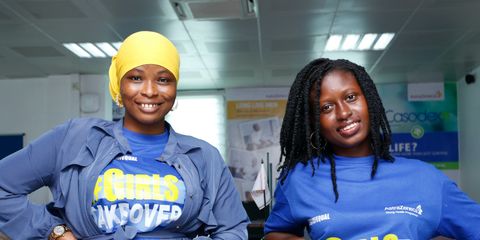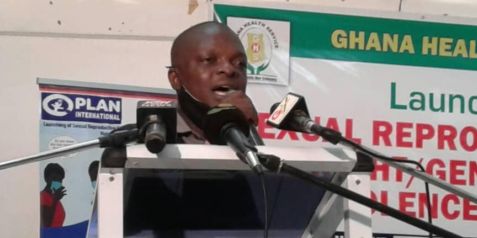Skills and financial services for COVID-19-affected women
Women affected by the COVID-19 pandemic in Ghana are learning new skills and accessing financial services to create better futures for themselves.
Women face deep-rooted obstacles to achieving their potential. Gender inequality means Ghanaian girls and women suffer discrimination economically, in getting an education, accessing health services and in politics. This impedes economic growth and social progress.
COVID-19 impact
The (COVID-19 pandemic adversely impacted and worsened the socio-economic plight of women in petty trading in the Sunyani Municipality in 2020. Economic challenges due to the pandemic threatened, disrupted and collapsed economic activities for many women.
Most affected are street hawkers, head potters and petty traders as well as those working in traditional restaurants (chop bars). The pandemic has slowed down buying and selling, with a huge impact on women in petty trading. Economic activities of women engaged in hairdressing and dressmaking were affected due to the pandemic causing huge economic challenges.
Boost for female skills and entrepreneurship
In response to these economic challenges, Plan International Ghana and Global Affairs Canada funded a project by Global Media Foundation (GLOMeF) to enhance female skills and entrepreneurship in the face of the pandemic.
Titled “Women Empowerment and Enterprise Development,” the 5-month project advocates for gender-sensitive and equitable workplaces, and trains women in basic entrepreneurship and vocational skills.
It also supports vulnerable women to overcome all forms of sexual and gender-based violence and empower them economically by providing training in income-generating activities.
The project works with around 5,000 vulnerable women, including those with disabilities and those currently unemployed.
New skills and financial services
Giving an overview of the project, Mr. Raphael Godlove Ahenu, founder and Chief Executive Officer of GLOMeF said the women would be trained in soap making and mushroom production. The project would support the women to form cooperatives, access credit facilities and improve access to the ready market.
“It would establish direct linkages between women and community banks, microfinance institutions and create market linkages for them as well,” he said. Mr. Ahenu thanked the funding partners and called on women to take the training aspect of the project seriously to build better futures. He expressed hope that women would acquire knowledge to start and expand their economic activities.
Ms. Christiana Korankye, GLOMeF Project Coordinator, said the COVID-19 pandemic disrupted economic activities of many women in the Sunyani Municipality. “The COVID-19 pandemic has virtually affected and collapsed economic activities of an increasing number of women entrepreneurs. They are facing several constraints that have affected the survival and growth of their businesses,” she said.
Ms. Kwakye said many businesswomen and traders in the Municipality had a lot of limitations in management, financial literacy, creativity and dynamism and self-confidence.
She added the project would improve business development and entrepreneurship skills and connect and help the women access credit facilities to establish and expand their economic activities.
Emergencies, Skills and work, COVID-19, Livelihoods, Savings groups, Vocational training

